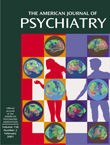The Psychosocial Treatment of Schizophrenia: An Update
Abstract
OBJECTIVE: The authors sought to update the randomized controlled trial literature of psychosocial treatments for schizophrenia. METHOD: Computerized literature searches were conducted to identify randomized controlled trials of various psychosocial interventions, with emphasis on studies published since a previous review of psychosocial treatments for schizophrenia in 1996. RESULTS: Family therapy and assertive community treatment have clear effects on the prevention of psychotic relapse and rehospitalization. However, these treatments have no consistent effects on other outcome measures (e.g., pervasive positive and negative symptoms, overall social functioning, and ability to obtain competitive employment). Social skills training improves social skills but has no clear effects on relapse prevention, psychopathology, or employment status. Supportive employment programs that use the place-and-train vocational model have important effects on obtaining competitive employment. Some studies have shown improvements in delusions and hallucinations following cognitive behavior therapy. Preliminary research indicates that personal therapy may improve social functioning. CONCLUSIONS: Relatively simple, long-term psychoeducational family therapy should be available to the majority of persons suffering from schizophrenia. Assertive community training programs ought to be offered to patients with frequent relapses and hospitalizations, especially if they have limited family support. Patients with schizophrenia can clearly improve their social competence with social skills training, which may translate into a more adaptive functioning in the community. For patients interested in working, rapid placement with ongoing support offers the best opportunity for maintaining a regular job in the community. Cognitive behavior therapy may benefit the large number of patients who continue to experience disabling psychotic symptoms despite optimal pharmacological treatment.



